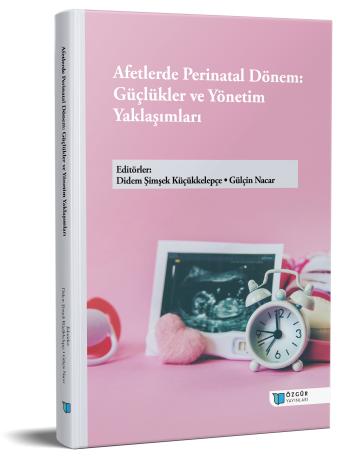
Afetlerde Kadınların Güçlenmesi, Hakları ve Karar Alma Süreçlerine Katılımı: Analitik Çerçeve
Şu kitabın bölümü:
Şimşek Küçükkelepçe,
D.
&
Nacar,
G.
(eds.)
2025.
Afetlerde Perinatal Dönem: Güçlükler ve Yönetim Yaklaşımları.
Özet
Afetler, yalnızca fiziksel yapıları değil, toplumsal dokuları da derinden sarsan karmaşık olaylardır. Bu olaylar, mevcut eşitsizlikleri keskinleştirerek toplumsal cinsiyet rollerinin yeniden üretildiği, görünür olduğu ve çoğu zaman sorgulamaksızın sürdürdüğü kritik kırılma anları yaratır. Kadınlar özellikle de sosyoekonomik olarak dezavantajlı, etnik veya kültürel azınlıklara mensup, engelli ya da yaşlı kadınlar; afetlerin etkilerine karşı daha kırılgan konumda yer almakta ve afet sonrası yeniden yapılanma süreçlerinde sıklıkla karar alma mekanizmalarının dışında bırakılmaktadır. Oysa kadınlar yalnızca afetlerden etkilenen pasif bireyler değil, aynı zamanda dayanıklılık oluşturan, yeniden toplumsal yapılanmayı destekleyen, bilgi ve deneyimiyle süreçlere yön verebilecek güçlü aktörlerdir. Bu bağlamda, afet yönetimi giderek daha görünür hale gelen “toplumsal cinsiyet perspektifi”, afetlere yönelik bütüncül ve sürdürülebilir stratejilerin inşasında vazgeçilmez bir parametre olarak değerlendirilmektedir. Ancak bu yaklaşımla sahaya yansıması, normatif düzeydeki politika belgelerinin ötesine geçmekte zorlanmakta, kadınların hak temelli güçlenmesi ve karar alma süreçlerine etkin katılımı çoğu zaman sembolik düzeyde kalmaktadır. Oysa afetlerin etkili yönetimi ve toplumsal dirençliliğin artırılması, ancak kadınların bilgi, deneyim ve liderlik kapasitesinden tam anlamıyla yararlanılması ile mümkün olacaktır.

